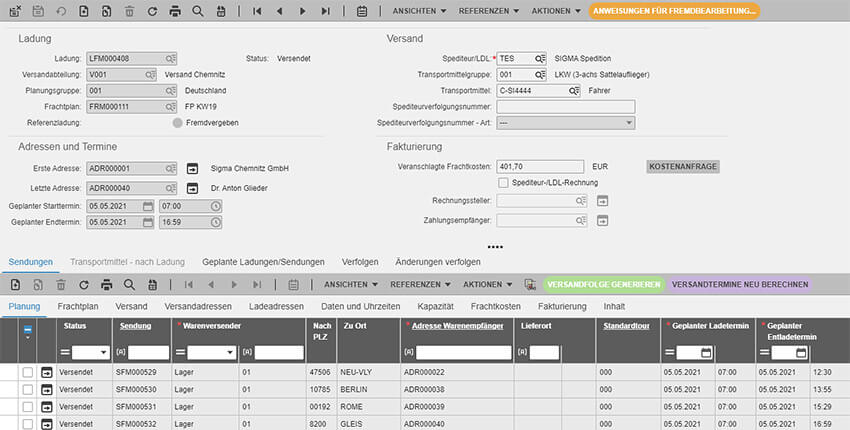Infor LN Freight Management
The way to manage your freight orders
In Germany, we are one of the few service providers able to competently advise and train you to use this Infor LN standard module – and also to install it.
As an expert for solutions related to Infor LN, we provide the freight management module with which you can plan the transportation of goods among your trade partners. You can manage the transportation of goods by yourself or outsource it to an external forwarder.
The data for the goods’ transportation is part of a freight order. It is possible to create freight orders either manually or have them generated based on the original orders, such as, for instance, sales or other orders.

Freight order management is based on defined master data that should be updated for this purpose. The data can define different means of transportation and assign them unambiguous loading capacities.
Moreover, you can build up a transportation network for routing consisting of standard routes and route plans by means of the addresses stored in the system. Thanks to this information, the system can determine the least expensive and most efficient transportation option. Freight management also supports you when establishing your own fleet of trucks. In this module, you can design fleets of trucks and plan the transport routes for single means of transportation.
Transportation planning
Within transportation planning, you can arrange your freight in an optimal manner. Assembly of freight primarily entails generating freight plans for a group of freight orders. The freight plan includes information about the goods to be transported, the loading and unloading addresses, and the loading dates and times.
Outsourcing
Transportation planning can moreover be outsourced to an external forwarder. In this case, you can generate freight clusters for freight orders and transfer the planned freight to a forwarder.

Transport cost calculation and freight tariffs
In cost calculation, freight costs are determined for each transport. These are the costs an enterprise must pay to transport goods to the forwarder. Costs are based on factors such as quantities, size, and weight, as well as the freight tariff for the selected forwarder.
Freight charge directories are generated either based on previously defined distance zones (also per forwarder) or on distances. In this context, one can update so-called distance tables (time and distance).




